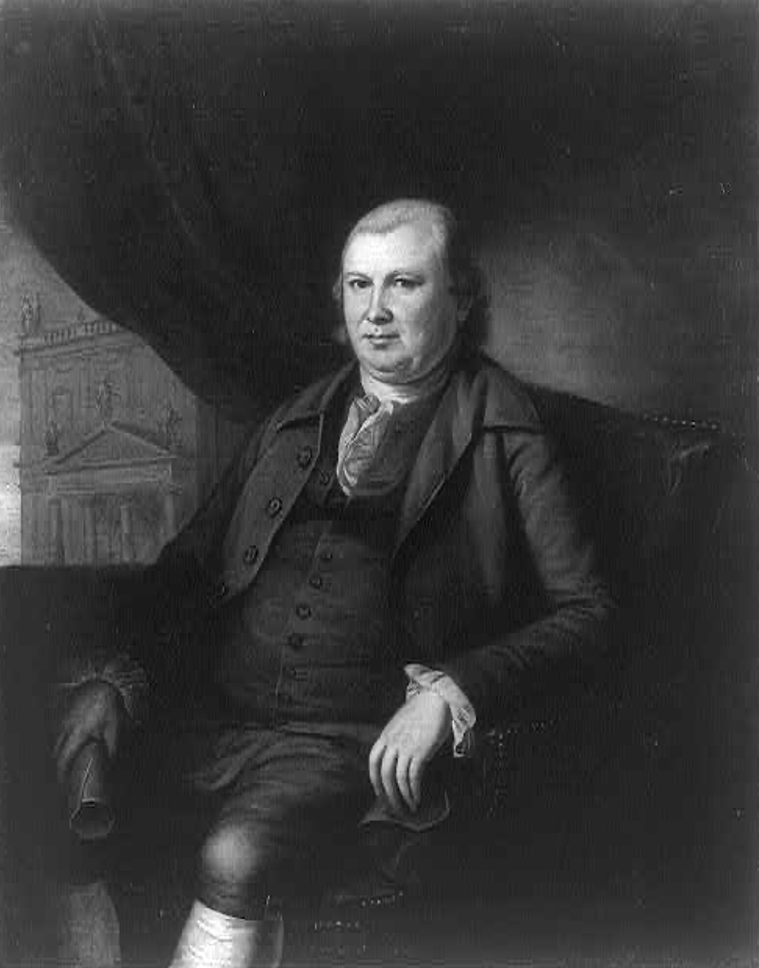After the French and Indian War, Morris was one of many who opposed the taxes (i.e. the Stamp Act) placed on the colonies by England.
In 1775, he was chosen as a delegate from Pennsylvania to the Second Continental Congress held in Philadelphia. He served on the Secret Committee of Trade, the Committee of Correspondence and the Marine Committee, and he was a signer of the Declaration of Independence. Morris resigned from Congress in 1778.
In 1781, the Continental forces were in a difficult financial situation. Morris accepted the appointment as Superintendent of Finance and helped to provide supplies to the Continental Army to enable the victory at Yorktown. He presented a plan based on his work with Alexander Hamilton to the Continental Congress to charter and open the Bank of North America, a private national bank. It opened on May 26, 1781. He believed that to achieve financial stability the new country would need the ability to levy taxes and tariffs. When he was unable to convince the government to do that, he resigned in 1784.
Morris went deeply in debt during the Panic of 1796–97. He died on May 8, 1806, in Philadelphia.


